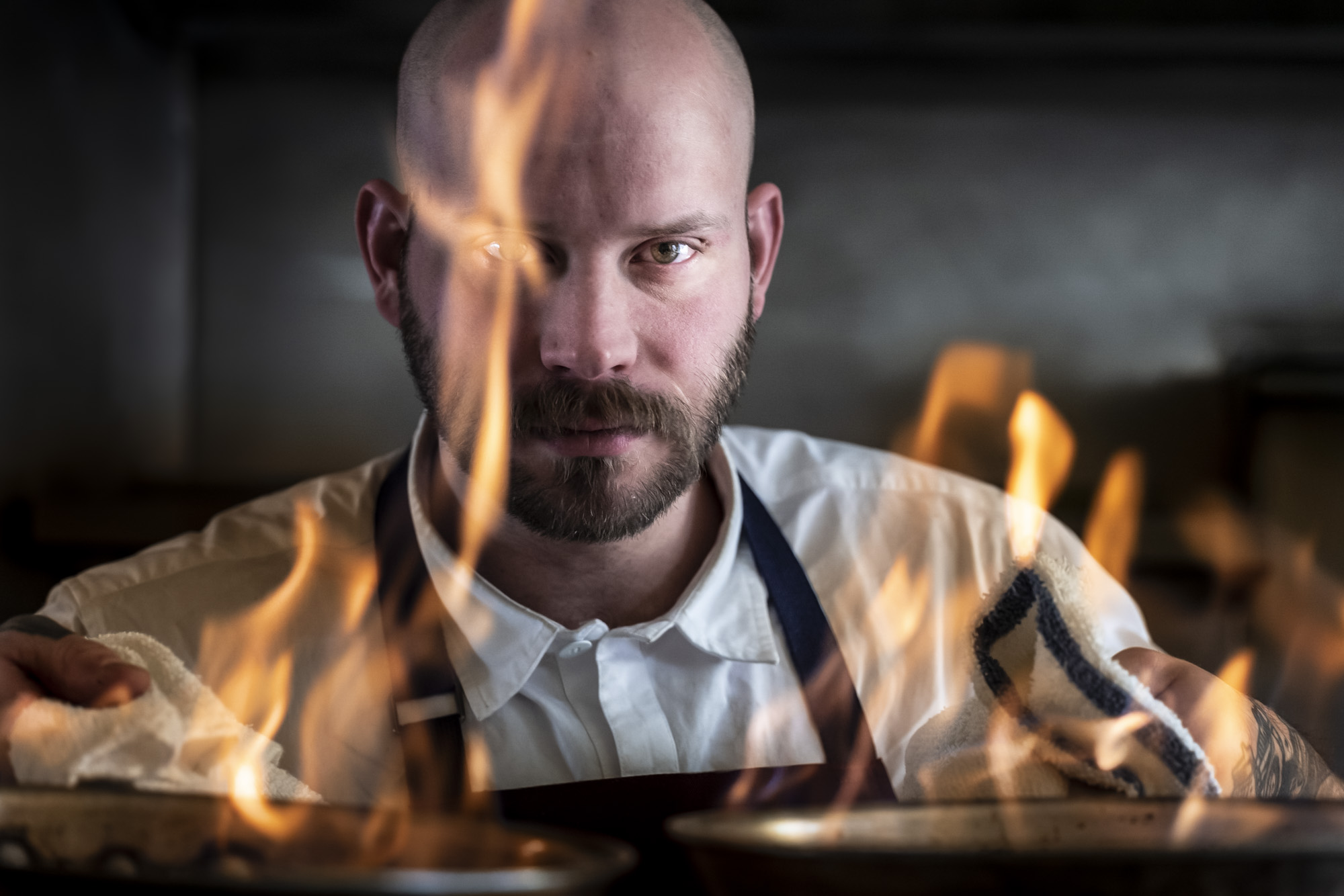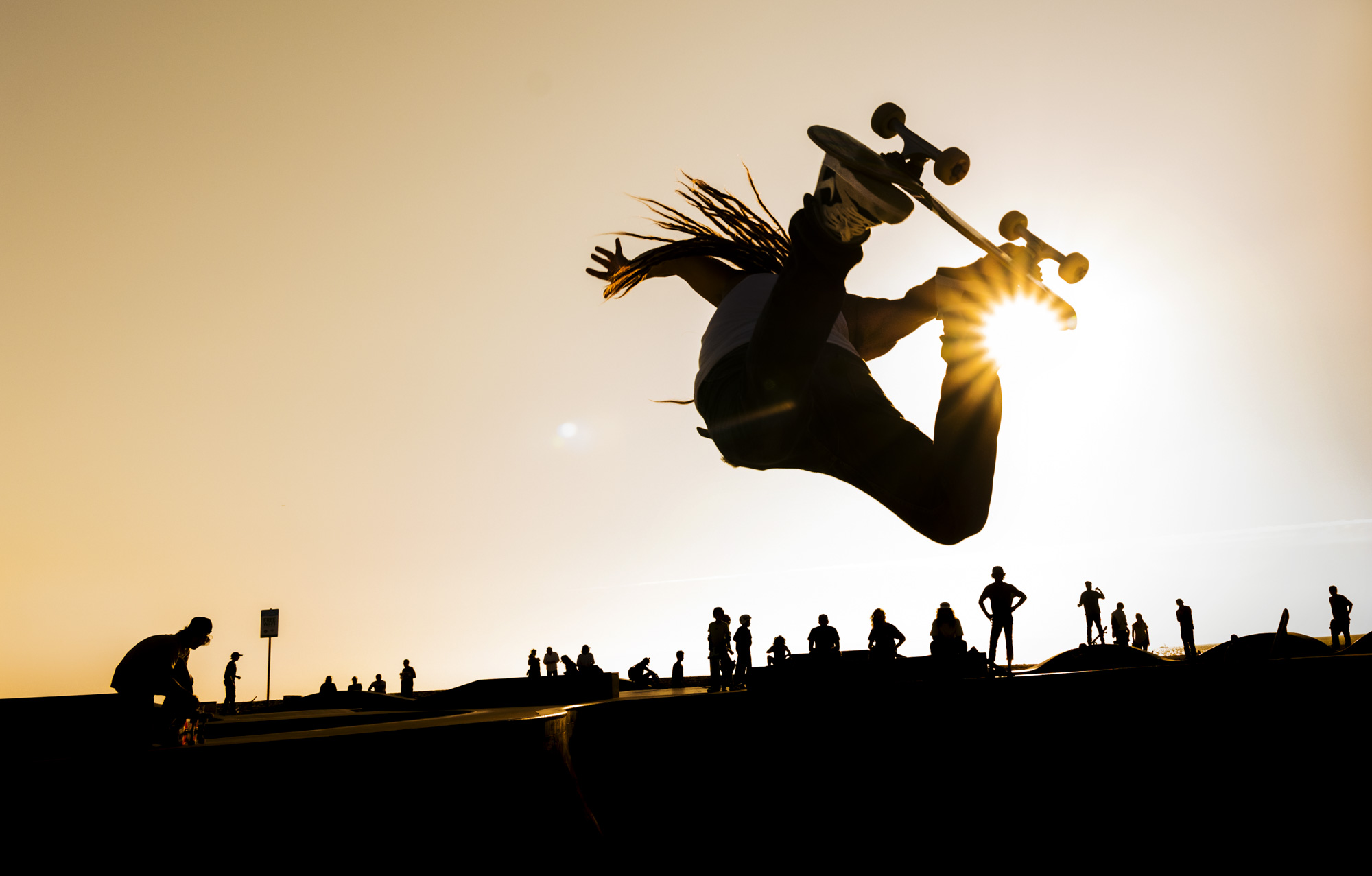
Doug Menuez on His Craft and How Technology and AI Factor in
Craft can mean many different things. A hobby you picked up during the pandemic, a DIY project you’ve taken on in your home, or a skill you have developed over many years. For Doug Menuez, it’s his photography. A lifelong commitment to his craft has led to evolutions in his style, technique and attitude toward the industry.
Technology has revolutionized every industry and advertising and photography are no exception. Change can seem daunting, scary or even a risk to job security, which is why it’s so important to continue to educate yourself in order to stay up to date with current trends and technology. Whether you are for or against the changes, being able to have a conversation about where our industry is going is important.
With the advent of AI, we are witnessing in real-time the next generation of photography’s evolution. Because of this, we asked Doug to share his insights into how this new technology will affect his craft.
How do you define craft?
When we talk about craft, we talk about the pride in learning a certain set of skills. The time, effort and energy it takes to achieve mastery of those skills and craft is the wrapping that ties all of that work together. Personally, it is a lifelong commitment and everything I do is in service of developing my craft and getting as good as it as I possibly can.
Photography is a craft with many makers, what sets your craft apart from others in the same space?
Before I even got my serious opportunity, I had 13 years of learning how to use a camera and develop images. I got my first camera at 10 and built my first darkroom at 12. By 14, I was shooting anti-Vietnam war demonstrations for a local paper and friends' family portraits. During those years growing up, I would shoot anyone and anything. I loved learning about the camera, the chemistry, math and technique needed to get from understanding light to pressing the shutter to holding up the printed image in the darkroom. My career has spanned many decades, so I think my ability to adapt to changes in styles and available technology is an asset to my craft. I have never stopped exploring since I first picked up that camera when I was 10.
What is the greatest thing you’ve done to develop your craft?
Not relying on digital has made my craft stronger. Digital is great: I was a digital pioneer and shot my first digital camera while covering the Super Bowl in 1982. But it can make photographers lazy as all too often, the algorithms are deciding, not your own creative vision. Now, anyone can pick up a camera and take an image that is in focus and has the right exposure. However, the reason my peers and I have careers as photographers was our ability to master the analog camera and harness it to our creativity in order to capture something truly unique.

It’s crazy for me to reflect on my career and how much has changed since I started my internship at the Washington Post. I arrived broke and with one camera and a few lenses but I couldn’t afford a light meter on my Nikon F. But I had already shot so much and learned a lot about light and film that I could read the light without a light meter and make correct exposures. even while shooting news. And there was definitely no such thing as auto focus or auto exposure.

Other photographers who were around at the time know the skill it takes to do all of this and capture the photo that your client wants. Digital is so forgiving we can get lazy. So while I will use the auto functions at times, not on relying them has made me a stronger photographer and in turn strengthened my craft.

Do you have a story from when you were shooting back then that sticks out in your mind as it relates to that strength?
When I was a photojournalist and shooting sports before autofocus was invented, it was insanely difficult to get the action. Especially with football. You had to anticipate the play and where the ball might go. We had to carry and lift very heavy long lenses to follow focus on the ball as it was rocketing down the field and press the shutter just as the receiver leaps up to catch it. Without autofocus. Honestly, I can’t even believe we did it. The level of awareness and skill had to be kept at a razor’s edge and I don’t take that for granted.
Does digital affect the integrity of the craft?
I don’t think so, it’s a strong asset. But I think knowing how to shoot film in addition to shooting digital is really important. About 15 years ago, I started shooting digital and a mentor started looking at my work and said “this is looking lazy”. I started to protest but then couldn’t disagree them him. One aspect people don’t think about is the number of images you’re able to take with digital. Most of us probably overshoot instead of watching closely and being more selective. When you are shooting film, it’s more expensive and the roll will run out much faster than a memory card so you are much more careful. So I was not paying attention as closely as I used to and was not thinking as hard about my choices for technical aspects of exposure that were just easier to do in digital.
I’m thankful this person said something to me because it prompted me to put my camera back on manual and get back to a heightened state of concentration, create a moment of pause and be present in my work. It’s really a form of zen when you get into that zone.
There is also a form of social engineering that goes into my work. I learn about the people I’m working with and study their lives. If you are always looking at the back of your camera you are not engaging with your subjects. You need to gain their trust and it really helps if you are truly present. Not relying on digital makes you a lot more intentional with which moments you’re going to capture.
Social engineering is not always something you hear from a photographer, can you expand on this?
I think it’s part of my craft and experience. I learned that the best policy to shoot a new group of people is to have an open mind and leave any preconceived ideas you have about them at the door. I try to have an attitude of humility that I know nothing and I’m there to learn. People invite you in and I like that feeling of being an outsider. It gives me the opportunity to learn about someone and ask questions. If you go in with an idea of what you think you know, you’re going to take pictures based on what YOU think represents the group rather than getting to know them and taking pictures that actually represent them. I bring this same craft, experience and humility to my advertising work and I think that’s been a valuable asset.
This segues well into the final question. How do you see AI being used in commercial photography? Will it affect your craft?
Look, AI is a valuable tool, there is no question there. But if you want authenticity, you won’t get that from AI. In a world where so much is fabricated, it’s important now more than ever to speak up for what is real. Only humans can know how other humans feel, that is what sets us apart from computers and AI. I want to make sure to incorporate my own human perspective and experience to a project because that is how you will get real emotions in photographs. Sometimes this approach is actually seen as counterintuitive, but I’m usually right to trust my instincts.
An example is a photo I took of my father last year. When I arrived on his 89th birthday, his last, I saw his wife Jean lying in his hospital bed with him. It was a sweet, deeply intimate moment I knew was important for me to capture before anything changed. Moments like those will never be able to be replaced by AI.
Humans are tool makers, we always have been and AI is just another tool that we will use. I think the question becomes, how can we leverage the digital tool to make our craft stronger? I was resistant to the digital camera at first because I thought it couldn't be as good as analog, but I’m stronger and better now by bringing those two worlds together. It is a tool that will help us automate certain things which can free us to be our best selves behind the camera. But as long as I have blood pumping through my veins, AI will just be another tool in my toolkit. I will always fight to use my hard-won craft to produce my photographs from the perspective of a human being.
